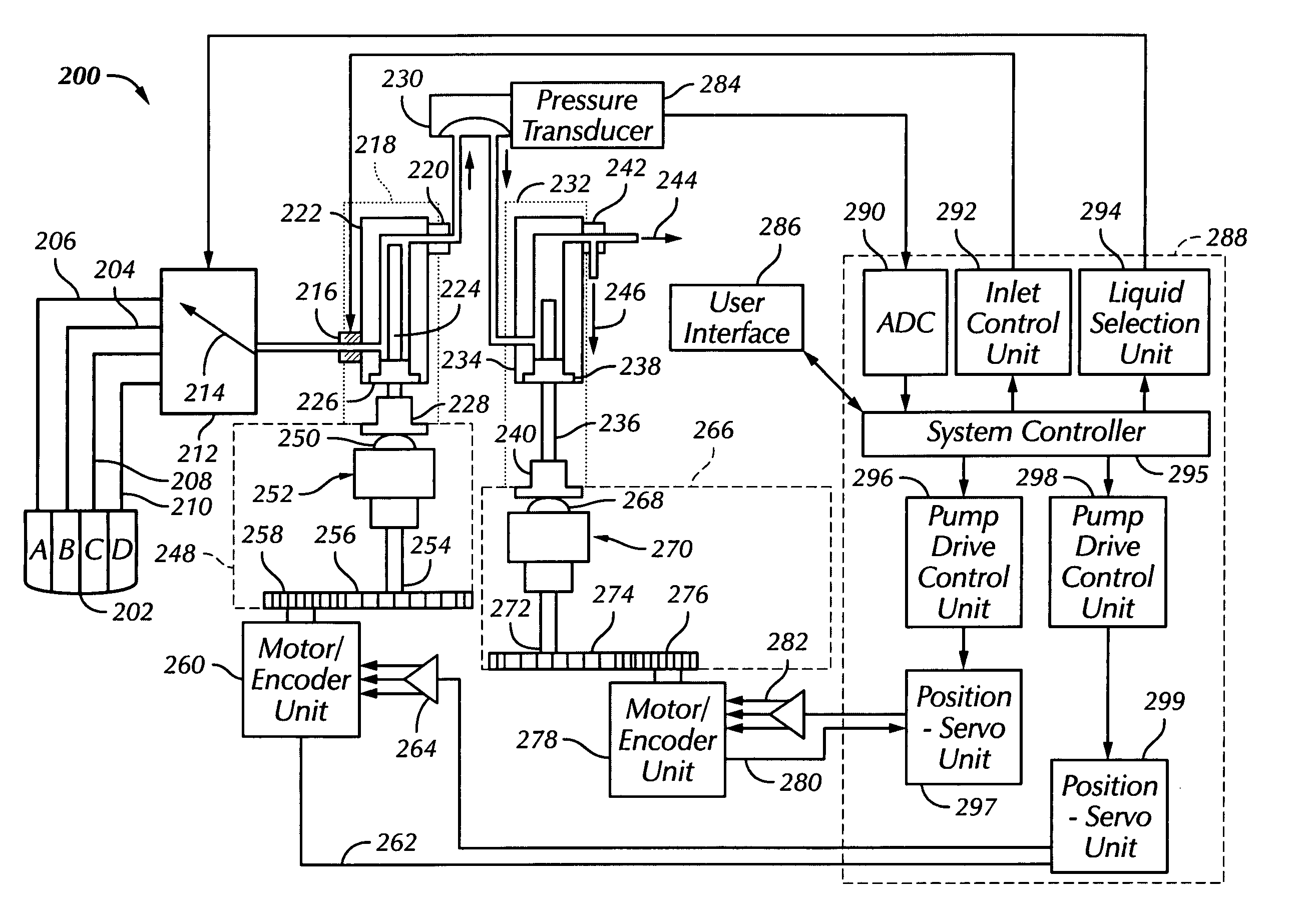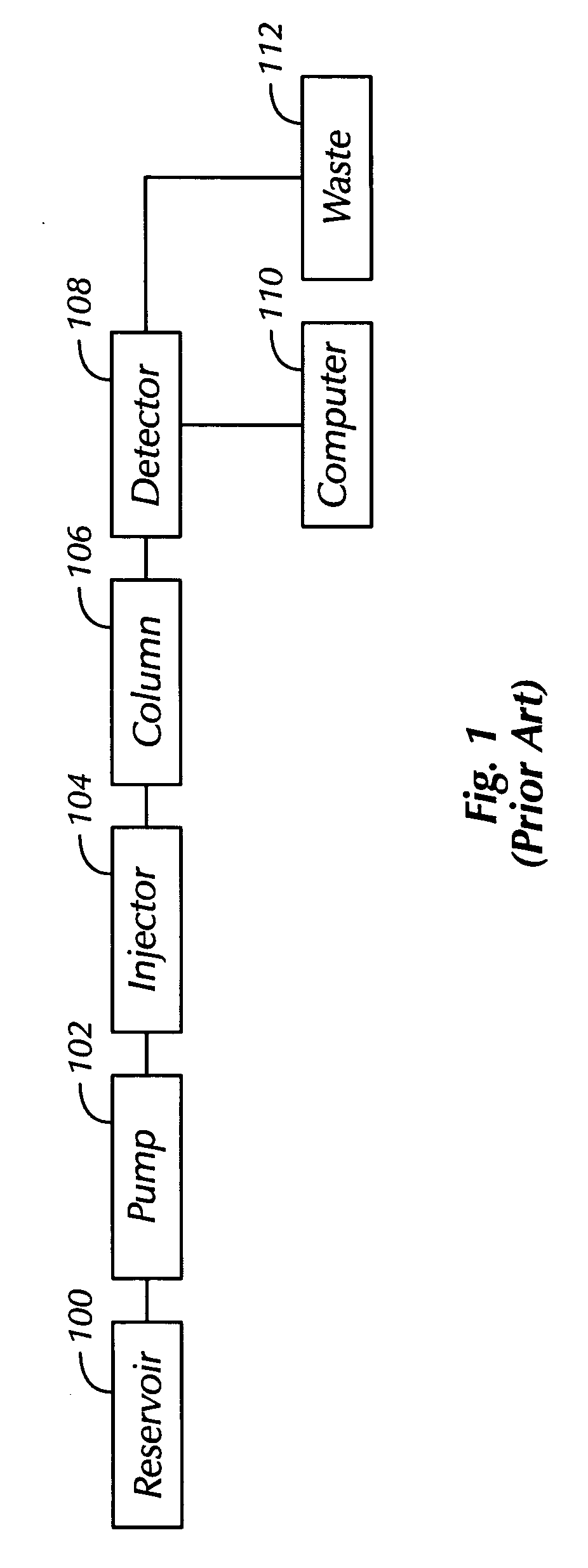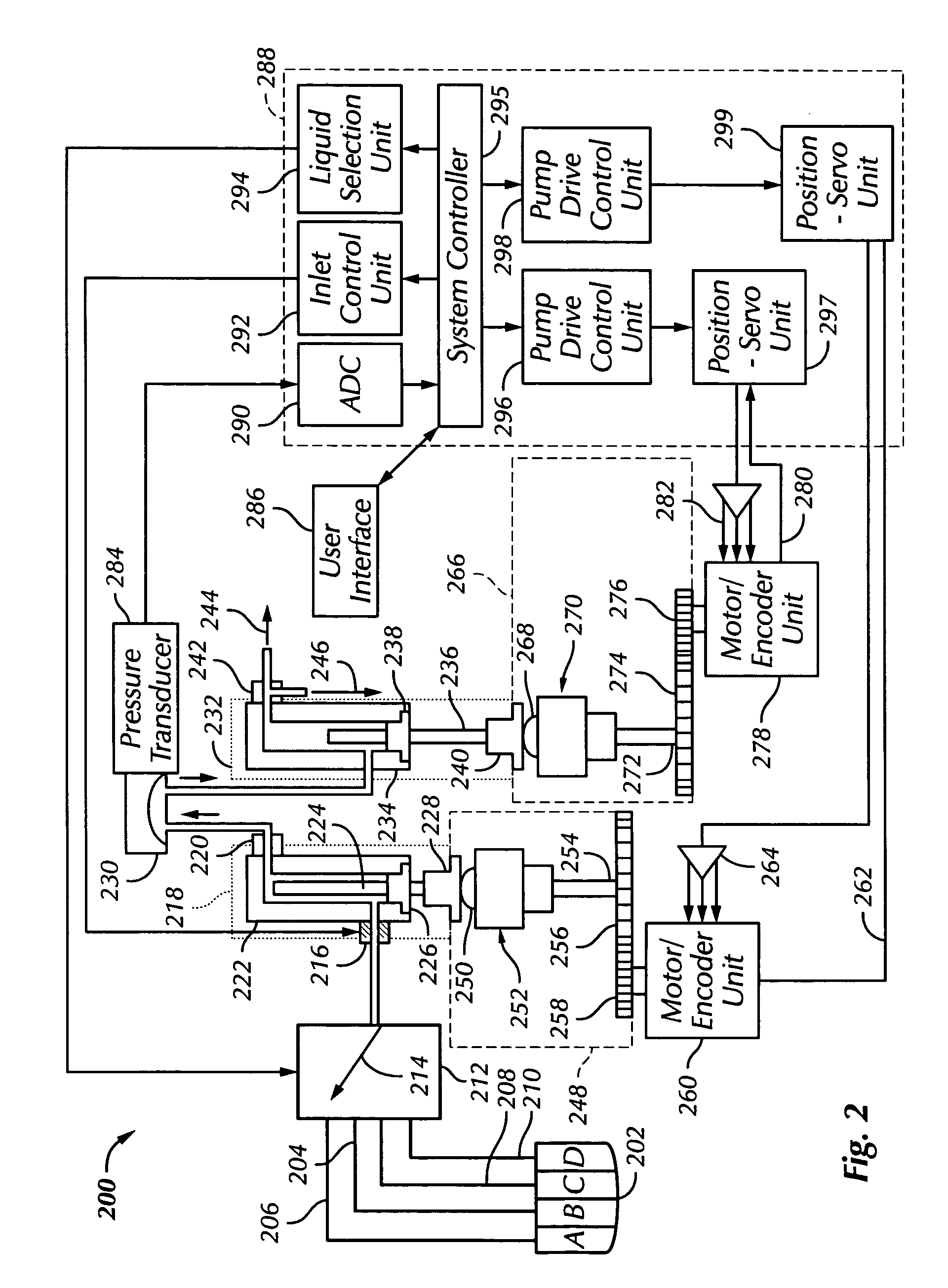Chromatography system with waste output
a chromatography system and waste output technology, applied in the field of chromatography, can solve problems such as affecting the analysis of samples (i.e., mixtures of components), and achieve the effects of optimizing the intake stroke, avoiding channel cross flow, and optimizing the delay volum
- Summary
- Abstract
- Description
- Claims
- Application Information
AI Technical Summary
Benefits of technology
Problems solved by technology
Method used
Image
Examples
second embodiment
[0153] In a second embodiment, a test is made to determine the tightness of the pumping unit 934. The liquid stored in the pumping unit 934 is metered out of the chamber 936 and through the flow sensor 942. The calibration curve for a known solvent 1136 is provided (e.g., by the manufacturer). The voltage of a known solvent 1138 at a known flow rate 1142 is identified. An unknown solvent 1140, such as liquid 922A, liquid 922B, liquid 922C, and liquid 922D, is then processed through flow sensor 942 at a known flow rate 1142. The calibration factor 1144 is then defined as the ratio of voltage of the unknown solvent 1140 to the voltage of the known solvent 1138. This method may be performed at different flow rates.
third embodiment
[0154] In a third embodiment, a test is made to determine the tightness of the pumping unit 920 and the pumping unit 934. The liquid stored in the pumping unit 920 is metered out of the chamber 922 and through the flow sensor 932, through the chamber 936, and through the flow sensor 942. The liquid stored in the pumping unit 934 is metered out of the chamber 936 and through the flow sensor 942. The calibration curve for a known solvent 1136 is provided (e.g., by the manufacturer). The voltage of a known solvent 1138 at a known flow rate 1142 is identified. An unknown solvent 1140, such as liquid 922A, liquid 922B, liquid 922C, and liquid 922D, is then processed through flow sensor 942 at a known flow rate 1142. The calibration factor 1144 is then defined as the ratio of voltage of the unknown solvent 1140 to the voltage of the known solvent 1138. This method may be performed at different flow rates.
[0155]FIG. 9B will be discussed in conjunction with FIG. 11C. At 1130 of FIG. 11C, th...
PUM
| Property | Measurement | Unit |
|---|---|---|
| stroke volume | aaaaa | aaaaa |
| flow rate | aaaaa | aaaaa |
| pressure | aaaaa | aaaaa |
Abstract
Description
Claims
Application Information
 Login to View More
Login to View More - R&D
- Intellectual Property
- Life Sciences
- Materials
- Tech Scout
- Unparalleled Data Quality
- Higher Quality Content
- 60% Fewer Hallucinations
Browse by: Latest US Patents, China's latest patents, Technical Efficacy Thesaurus, Application Domain, Technology Topic, Popular Technical Reports.
© 2025 PatSnap. All rights reserved.Legal|Privacy policy|Modern Slavery Act Transparency Statement|Sitemap|About US| Contact US: help@patsnap.com



